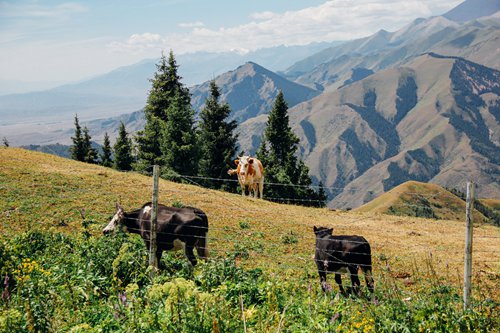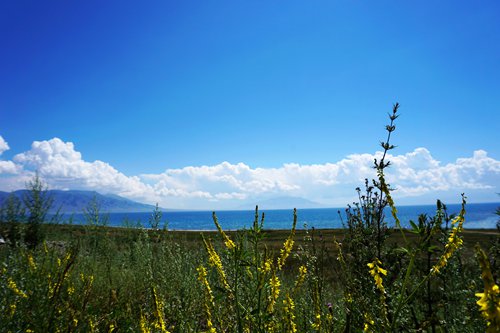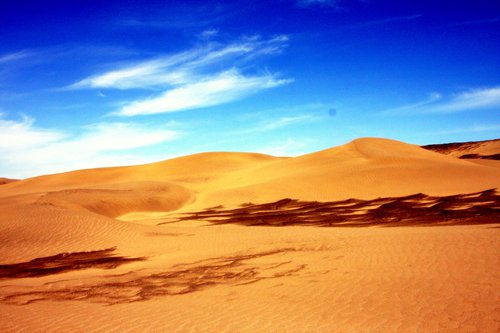Ancient Silk Road site preserves lakes, deserts, history and culture
Bortala, meaning "silver grassland" in Mongolian, is at the west part of Junggar Basin and shares a 372-kilometer border with Kazakhstan to the north.
Silver grasslands and a holy lake, high-end camping and rare salamders from the dinosaur age — those are the things you can witness in Xinjiang's smallest prefecture.

Bortala Mongolian Autonomous prefecture, located in the northwest of Xinjiang Uyghur Autonomous Region and bordering Kazakhstan, is taking advantage of its unique geographic resources to promote tourism.
In Bortala, people can experience all of Xinjiang's openness and peace in a nutshell.
Holy and wild
Bortala, meaning "silver grassland" in Mongolian, is at the west part of Junggar Basin and shares a 372-kilometer border with Kazakhstan to the north.
The region used to be a main communication center on the Silk Road in ancient times, and is a significant hub on the current Belt and Road.
Founded in 1954, the region has rich natural resources on its 27,200 square kilometers of land.
Sayram Lake, a 40-minute drive from Bole, the capital city in Bortala, is dubbed "the last tear of the Atlantic Ocean," as the warm and wet air from the west end of the continent stops here.

The lake, embraced by grass in mountains at a 2,073-meter altitude, displays different shades of blue when people watch it from different positions, at different times or under different weather conditions.
As early as 3,800 years ago, there was human activity around the lake. It is considered a holy lake by ancient residents.
Now the lake, as a landmark of Bortala, is visited by more than a million tourists every year. The annual bicycle competition around Sayram can always attract participants and audience members from China and overseas.
Another iconic lake in Bortala, the Ebinur Lake in Jinghe county, is Xinjiang's biggest saltwater lake and is home to around 1 million birds.
Jinghe not only owns the treasure of water, it also has the Mutetar Desert, the largest shifting desert in Junggar, with magnificent scenery.
The entirety of small Wenquan county is a scenic spot itself as well.
Wenquan, meaning hot spring in Chinese, has been developing an ecological and relaxing type of tourism, using its geothermal resources and natural scenery.
It is also the home to Xingjiang salamanders, a species from the dinosaur age that only lives in a small area with an absolutely clean environment across the China-Kazakhstan border.

Moreover, the Kruger Camps, a camp with 15 wooden villas built in the mountain forests of Wenquan and newly opened in late May, has welcomed guests from around the world, including the U.S., who were all impressed by the stunning scenery.
The most mysterious but attractive spot in Bortala is the Xiaerxili Natural Reserve near the border between China and Kazakhstan.
It used to be a disputed region, but in 1998 both countries agreed it belonged to China. Nowadays it is an unpopulated area and people can enter to view "the last virgin land" with permission.

